DIY Bacteria Busting Bathroom Cleaner Spray
I don’t think anyone really enjoys cleaning the bathroom, but it is probably safe to say we all appreciate a clean and pleasant smelling bathroom. DIY Bacteria Busting Bathroom Cleaner Spray, not only cleans your commode but will banish bathroom odors. Made with Castile soap, tea tree, and eucalyptus oils, this is a powerful cleaner you can make at home.
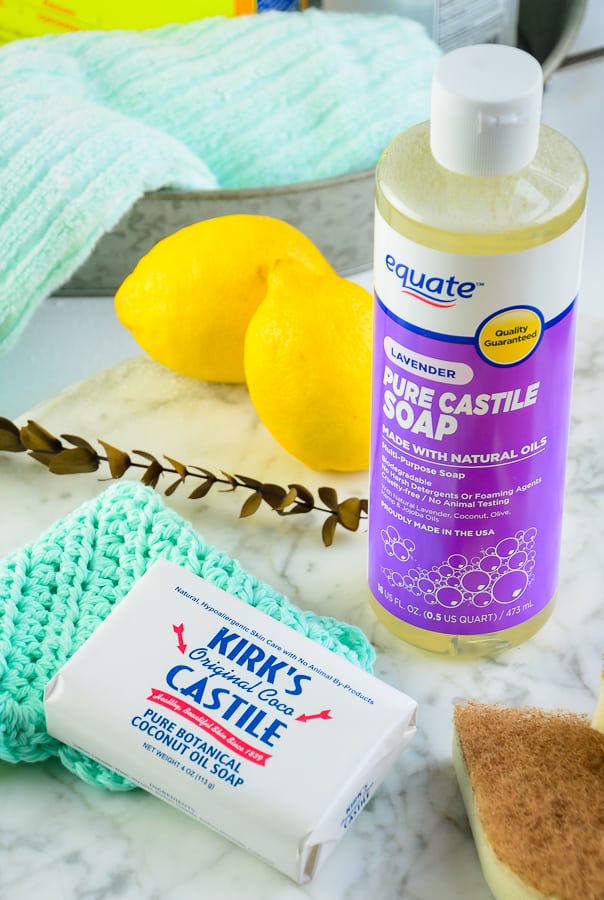
I have to warn you this cleaner has a strong Tea Tree Oil smell, and if you are sensitive to scents you may want to crack a window. I personally think Tea Tree oil has an almost medicinal scent, and if I am totally honest with you I don’t love the scent of this one while I am cleaning. BUT, Tea Tree oil and Eucalyptus oil are essential oil workhorses, and nothing I have ever bought commercially has ever banished my bathroom of urine scents like these two oils. After I clean I do enjoy the lingering clean refreshing scent of eucalyptus, that is what a bathroom should smell like! Which is what has earned this cleaner a place in my all-time favorite homemade cleaners.
If you struggle with unpleasant odors in your bathroom (#BoyMomsUnite) you may also like my Homemade Grout Cleaner, it is a scrub paste that contains baking soda, a known odor absorbent, vinegar a good deodorizer, and tea tree oil which contains strong antibacterial and fungicidal properties.
To use this cleaner I thoroughly spray the toilet and all surrounding areas, because #boybathroomissues. The tile surround, tile floor, grout, and behind the toilet all get saturated, and then I let it sit to work it’s magic for about 10 minutes, sometimes longer if I get side tracked. Like I said this cleaner has a strong scent, but the Tea Tree Oil and Eucalyptus oils are an effective one-two punch to knock out odors and germs. Using a wet wipe I rinse the surfaces rinsing the wipe as needed, and Ta-Da I have a clean and fresh smelling bathroom.
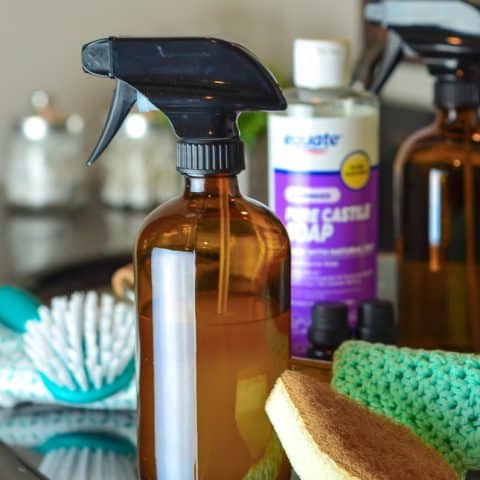
Bacteria Busting Bathroom Cleaner
Materials
- 2 c. distilled water
- 1/4 c. liquid Castile soap
- 1 Tbsp Tea Tree Essential Oil
- 10 drops Eucalyptus essential oil
Tools
- Empty Glass Spray bottle
- 1 small funnel (helpful but not necessary)
Instructions
- Combine all ingredients in a spray bottle, and shake well.
Recipe Source: The Naturally Clean Home: 150 Super-Easy Herbal Formulas for Green Cleaning
Because I don’t have a lab, and even if I did wouldn’t have the slightest idea how to test the antimicrobial properties of homemade cleaning products, I rely on information sourced from reputable studies on antibacterial effects of different essential oils, here are a couple of links if you are interested in further reading about the antimicrobial and antibacterial properties of Eucalyptus and Tea Tree Oils:
- Melaleuca alternifolia (Tea Tree) Oil: a Review of Antimicrobial and Other Medicinal Properties | US National Library of Medicine National Institutes of Health |2006 Jan; 19(1): 50–62.
- Antibacterial activity of the essential oils from the leaves of Eucalyptus globulus against Escherichia coli and Staphylococcus aureus | US National Library of Medicine National Institutes of Health | 2012 Sep; 2(9): 739–742.
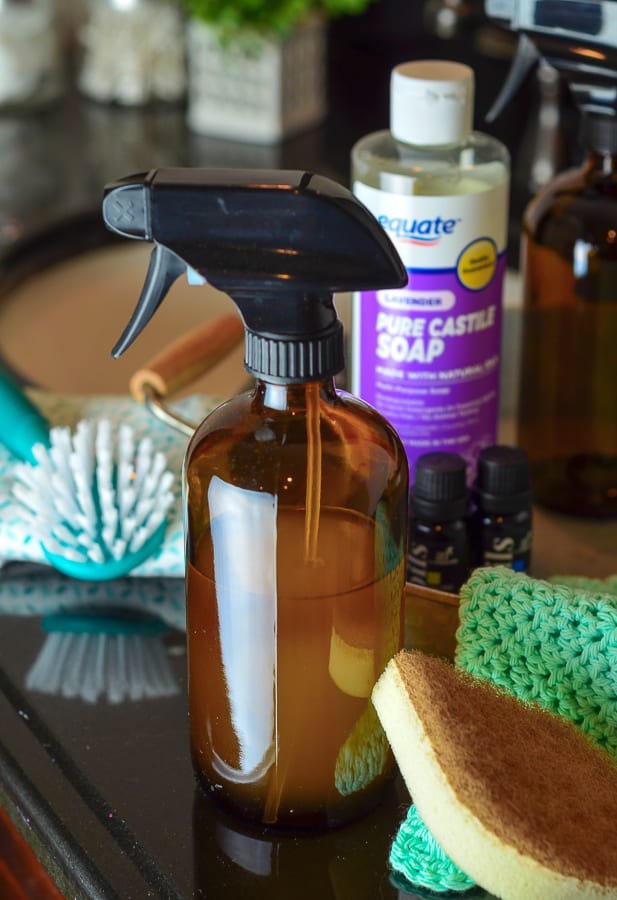
Remember, when you use water in a homemade cleaning product without a preservative you always run the risk of introducing bacteria, which is why I use distilled water, while this helps limit possible contamination, you should also use water-based cleaners quickly. If you are unsure how long it will take you to use up this cleaner start out by making half a batch. Also, make sure to check out my post on Getting Started with Homemade Natural Cleaners for more tips and pointers on homemade cleaners use and related safety precautions.
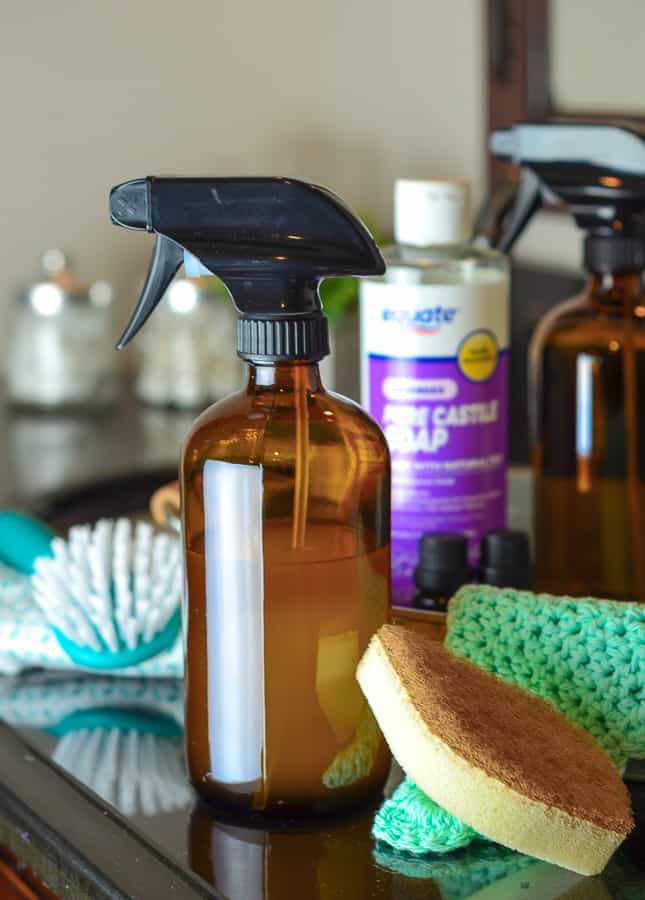
Essential oils, while natural are highly concentrated and there are safety concerns associated with improper use of essential oils. Essential oils should be used with caution, as some can trigger allergic reactions if it comes into contact with the skin for some individuals. Pregnant women should consult a doctor before using essential oils, and care should be taken to always store essential oils out of reach of children.
The DIY cleaning recipes on this website are based on my personal experiences. Obviously, I don’t have a lab to test the efficacy of these products on germs, and I am not a trained chemist or cleaning specialist. The DIY recipes shared on this website are the results of my own research at reputable sources, and experiences within my own home. Information about my cleaning recipes has not been evaluated by the Food and Drug Administration. Please use your own discretion, based on your own research, when making homemade products.

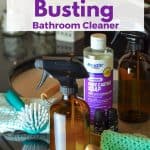
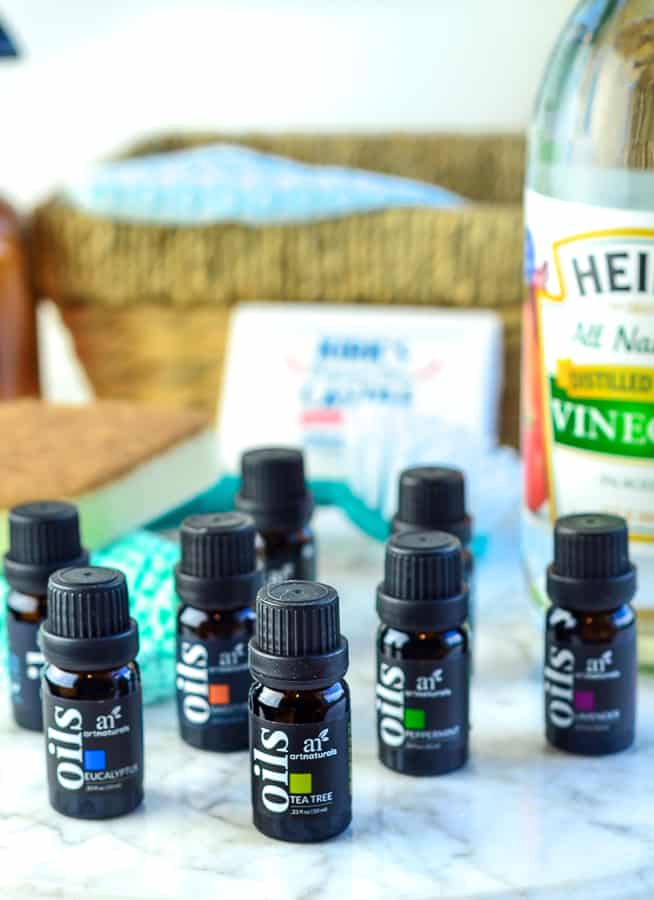
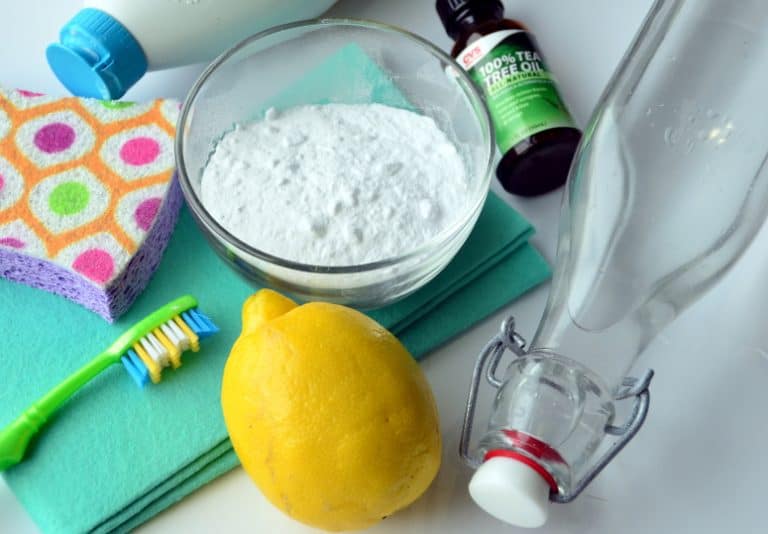
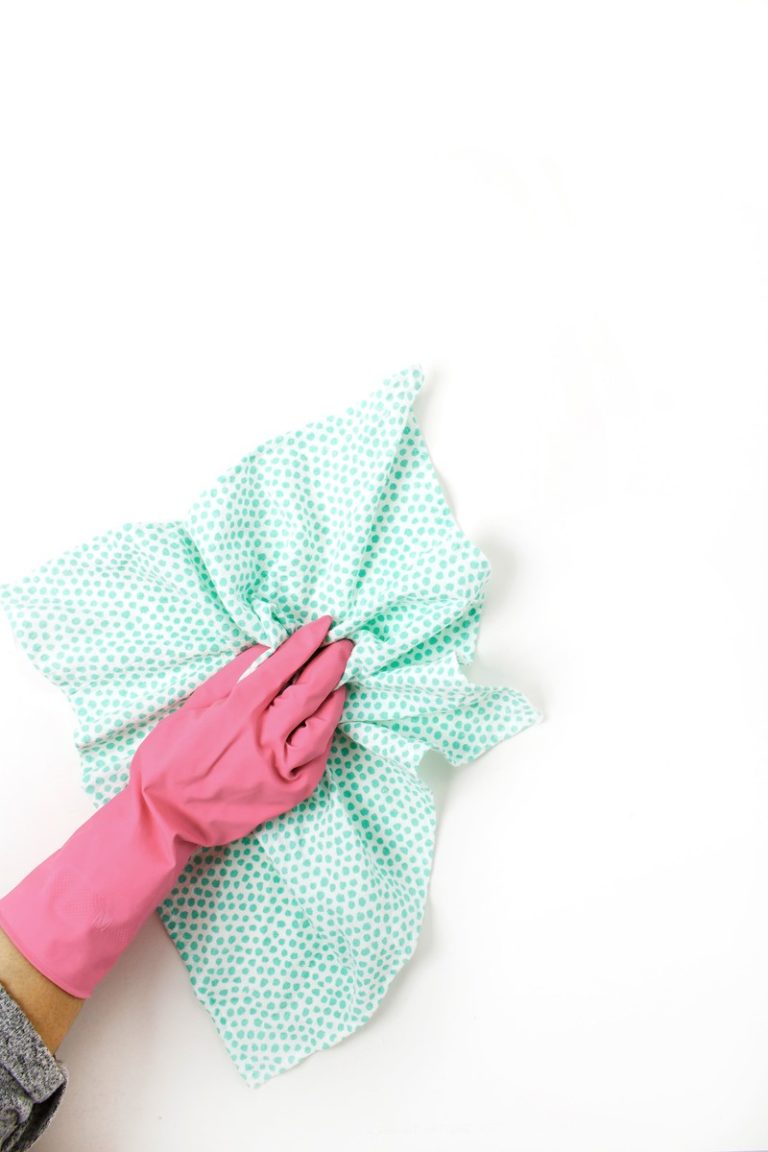
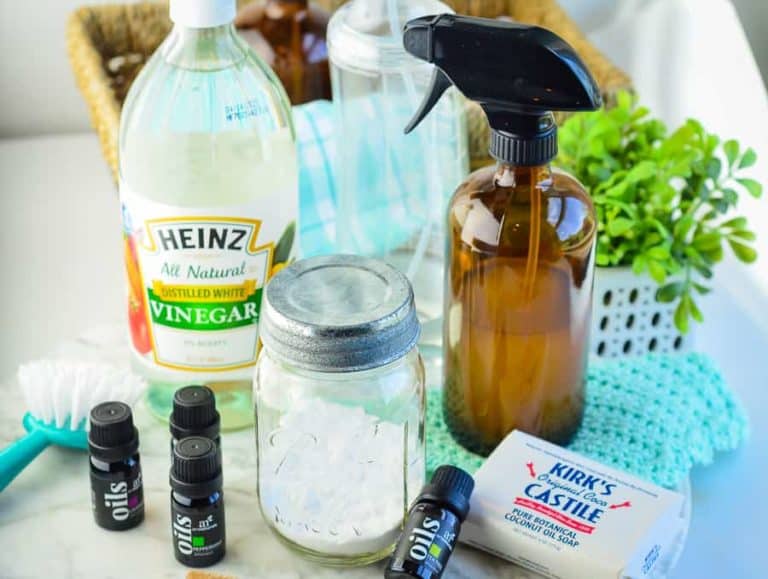
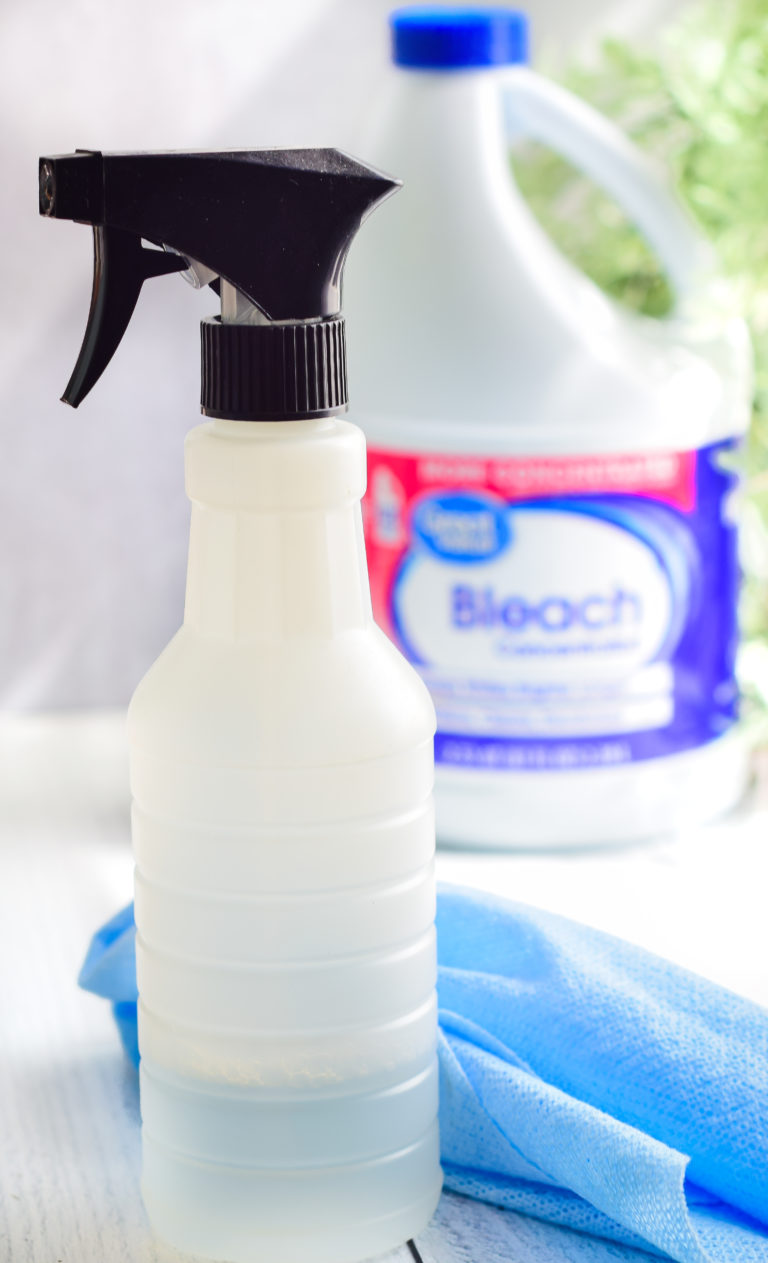
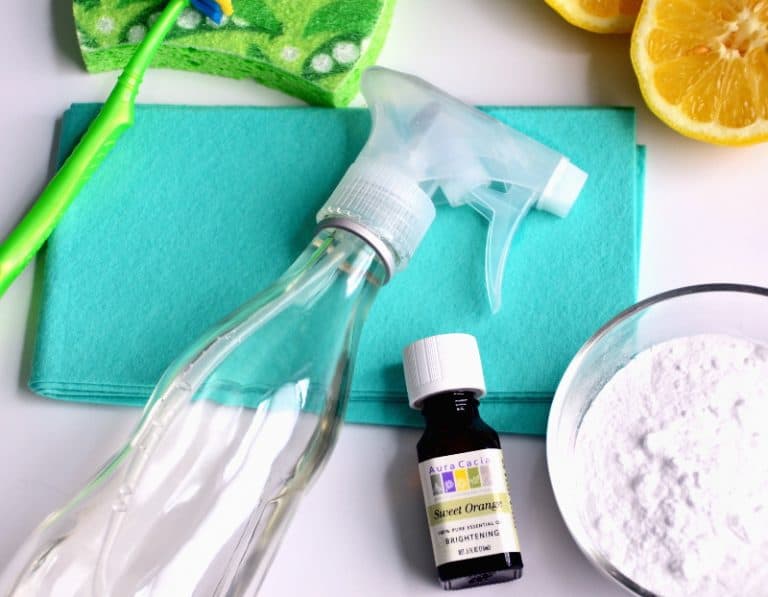
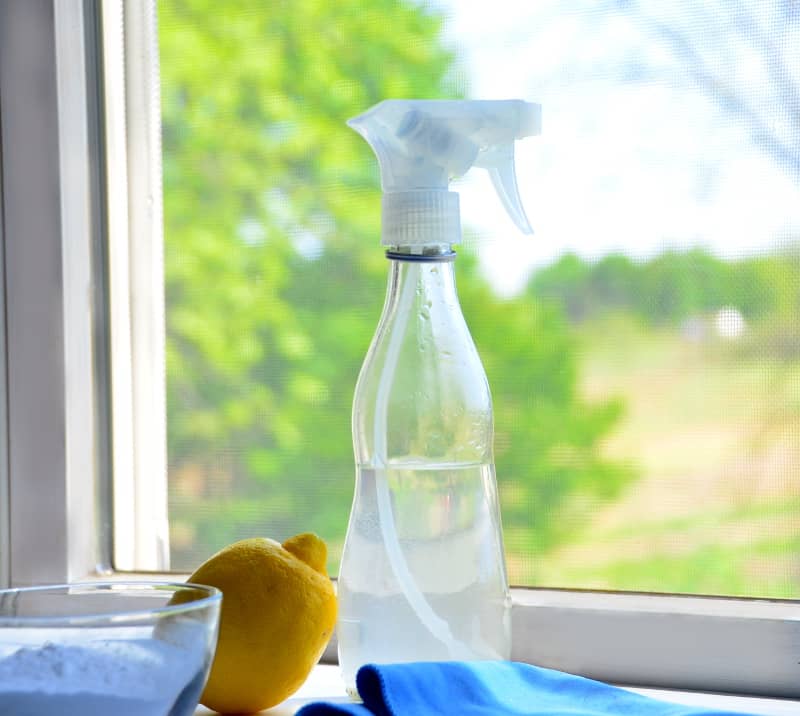
2 Comments